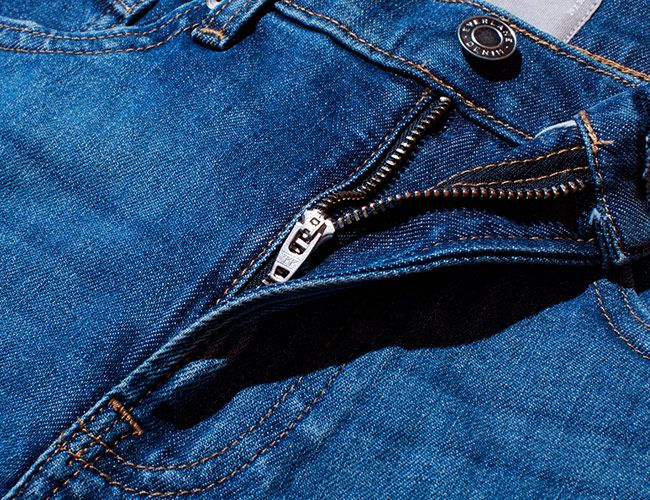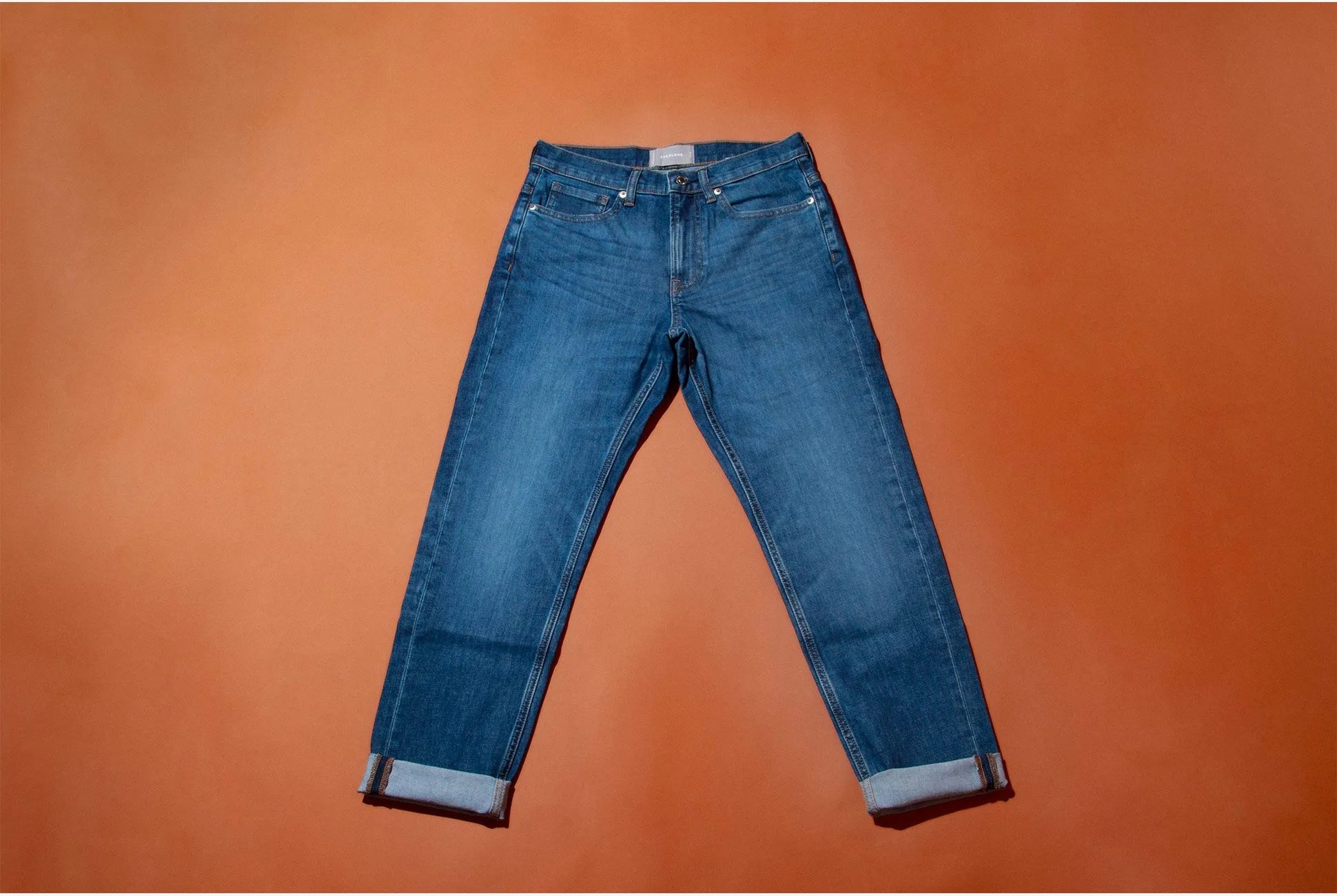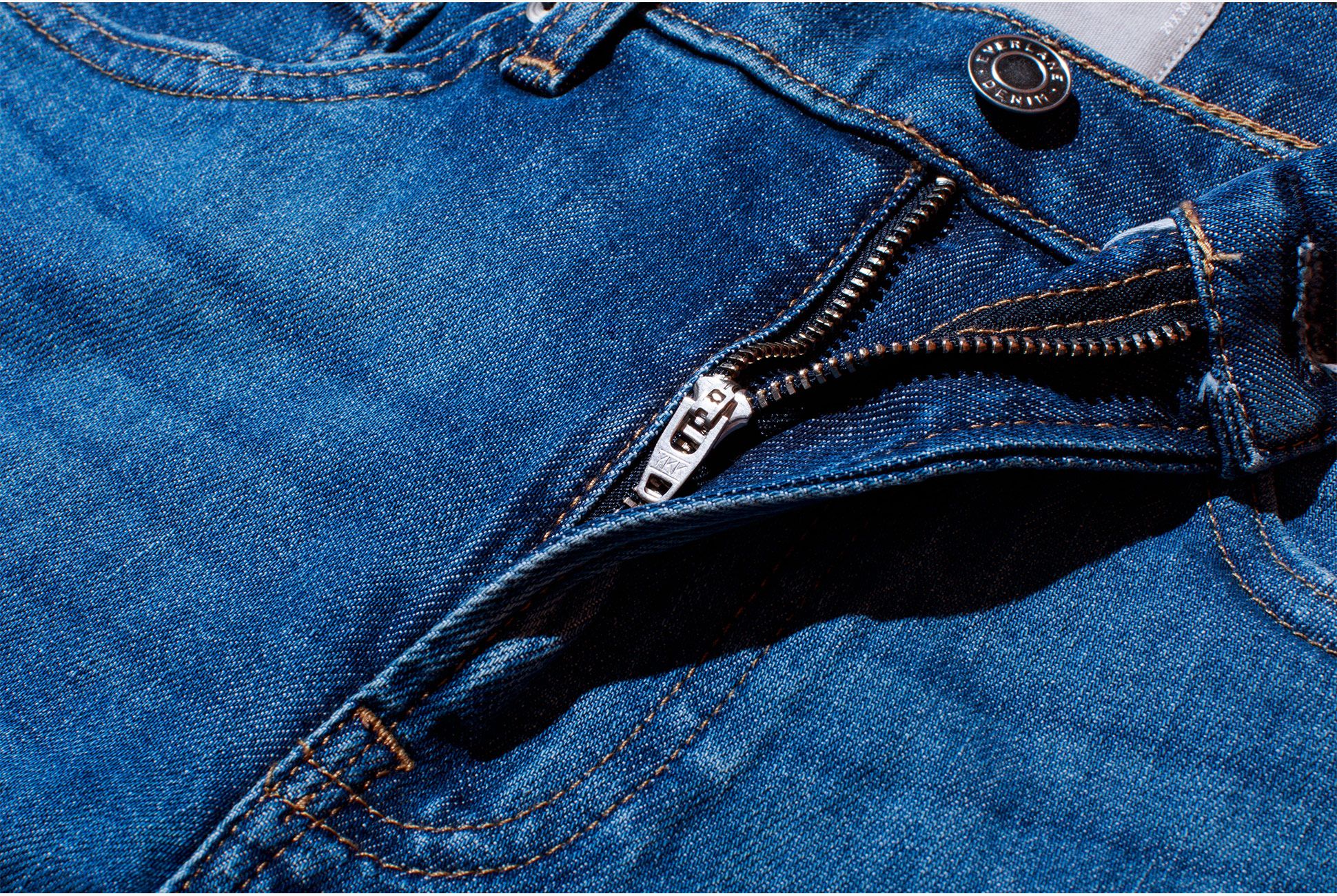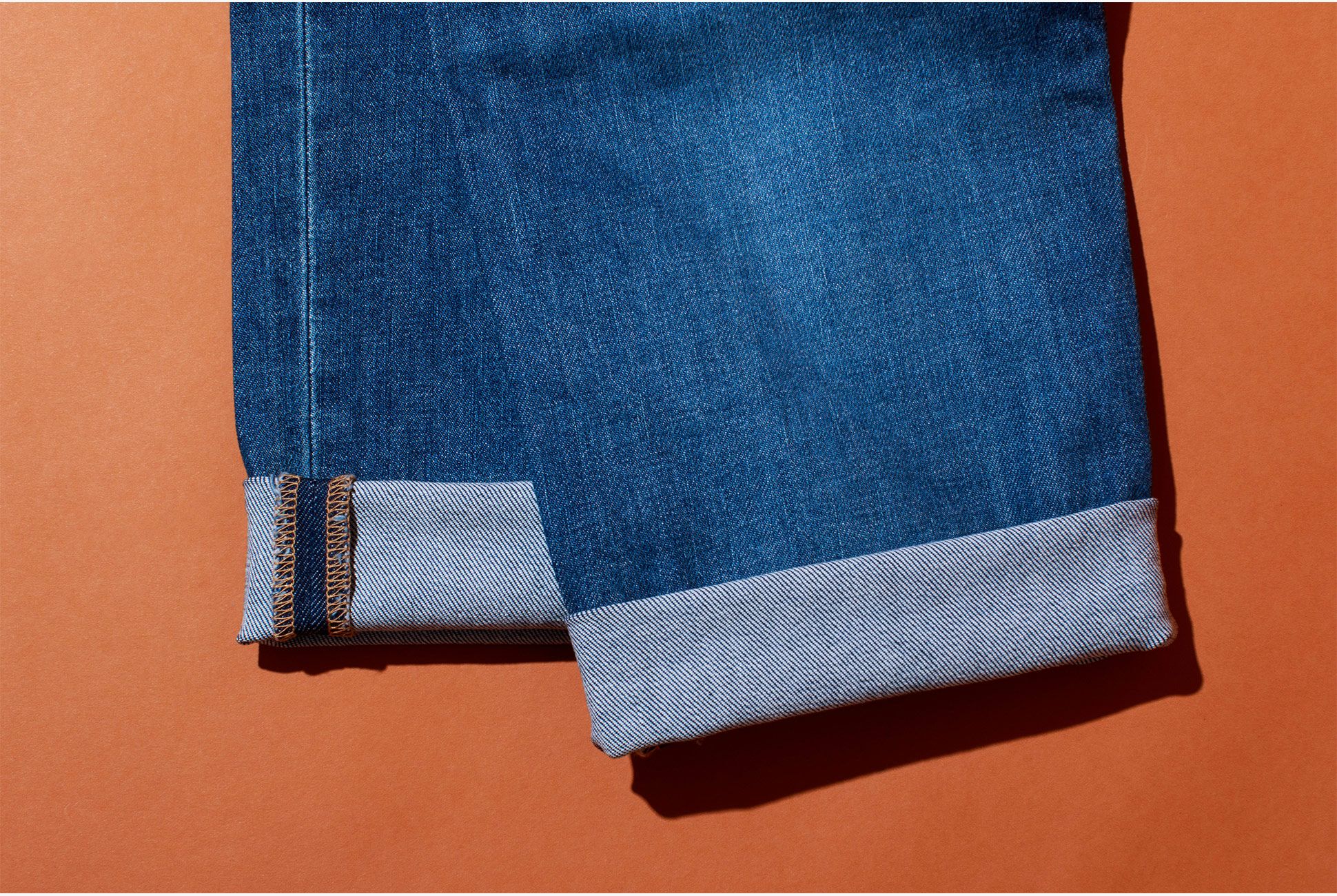3 photos
Direct-to-consumer trailblazer Everlane announced its expansion into denim last September with a collection of jeans priced at $68. The jeans — made from Japanese denim — come in a range of washes and fits, and the brand touts the ethical methods used to produce the line. On paper, these jeans sound almost too good to be true: affordable, ethically-minded, Japanese. To make an educated purchasing decision, however, it’s best to unwrap these selling points and explore what actually goes into a sub-$70 pair of jeans.
Everlane uses 11-ounce denim from the Kaihara mill in Japan to make its jeans, and, like most denim available today, it includes a small amount of stretch (2%) for comfort. Kaihara was an essential player in developing Japanese-made denim a half-century ago and has since become a major producer in its own right. The company makes 42 million meters of denim per year, the majority of which is stretch denim. Around three-quarters of this denim is sold overseas, and it has been utilized in other affordable jeans from Uniqlo, Gap and J.Crew, among others. This isn’t the loom-state denim you’ll find in premium Japanese denim brands like Iron Heart, The Flat Head or The Strike Gold, but that’s just the point: these aren’t jeans for denim aficionados, they’re jeans for the standard consumer’s everyday wear.
The construction of Everlane’s jeans is perfectly serviceable and on par with what you’d find in jeans costing considerably more. The brand opts for unlined back pockets reinforced bar tacks instead of rivets, a common practice for many jean manufacturers. Instead of a more durable button fly, Everlane’s jeans have a zip fly, which, though more cost-effective, will wear out considerably sooner. These concessions of durability help keep the cost down and reinforce the fact that these aren’t investment garments.
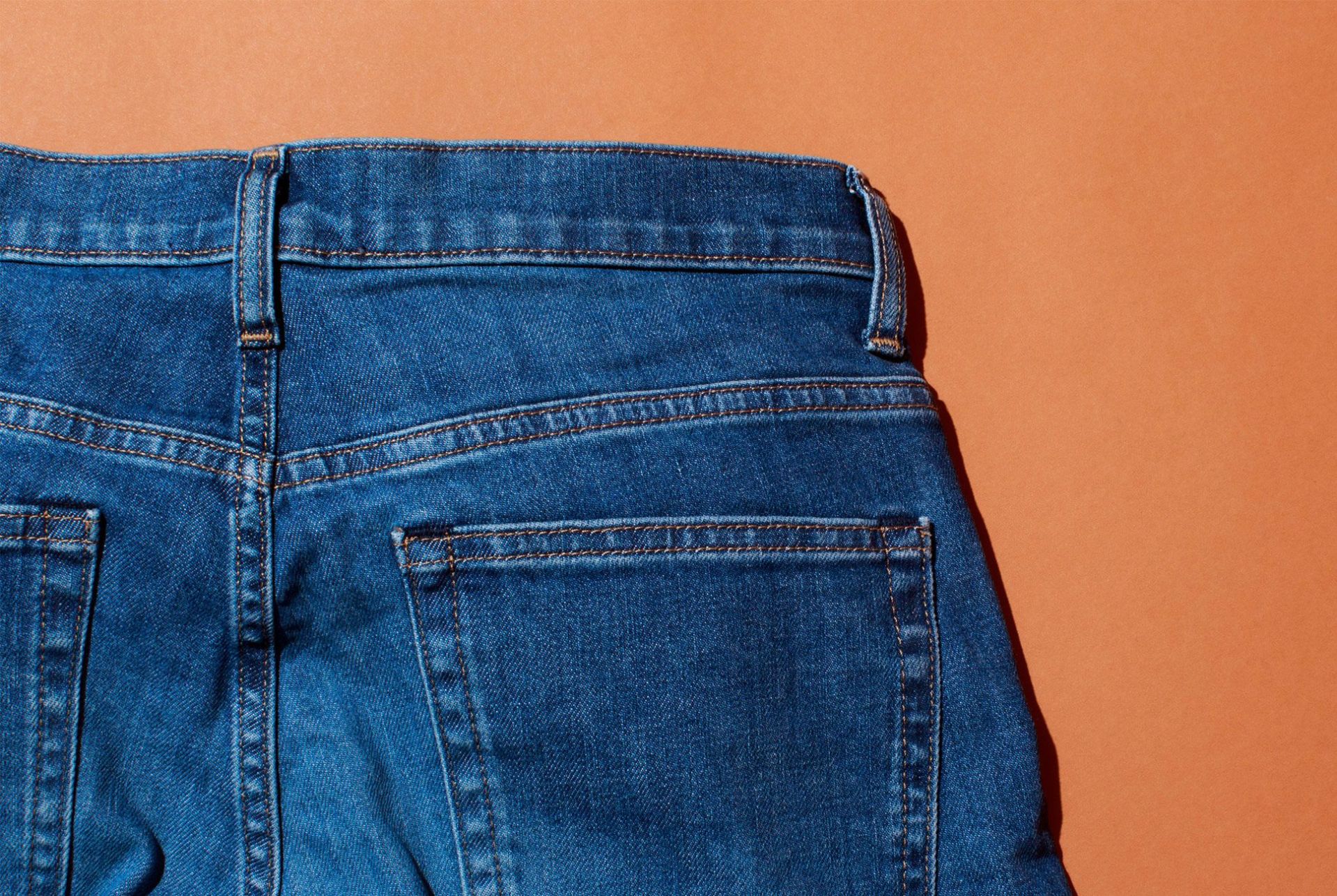
To produce its denim, Everlane works with the Silver LEED certified Saitex factory in Ho Chi Minh City, Vietnam. The factory recycles 98% of the water used in the production process, builds bricks for affordable housing with denim byproducts, and uses ozone processing and aerial drying techniques to reduce environmental impact. Inexpensive clothing that is ethically-made is hard to come by, and this collection from Everlane certainly takes a step in the right direction. It should be noted that these jeans still aren’t sustainable or eco-conscious, words frequently used to describe this collection. In its lifecycle, a pair of jeans uses over 3,700 liters of fresh water, and a study by Levi’s shows that 68 percent of this water consumption happens during the production of the fiber (cotton). This same study shows that the cutting, sewing and finishing of the jeans only makes up one percent of total water consumption. So while Everlane’s denim may be ethically-manufactured, it is neither sustainable nor eco-friendly (but this is the case with most all denim, save the Levi’s Wellthread x Outerknown collection).
If you’re looking for a pair of everyday jeans for a good price, Everlane’s denim is hard to beat. It’s not the for the connoisseur of whiskers and fades, or the person obsessed with premium construction and unique fabrics. It’s for someone who wants a well-made pair of jeans, cut from comfortable denim.
